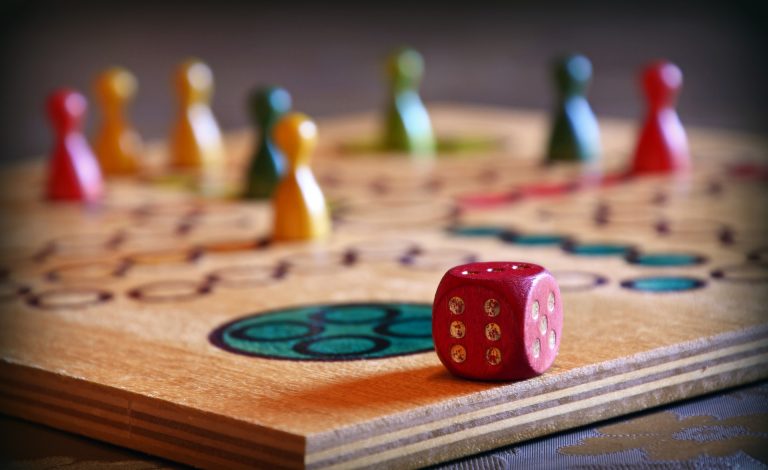There Are No Gamers Anymore, Only Game Critics

By MARK WILSON

Art can be sectioned off into all sorts of sub-categories, but for our purposes here, there are two broad-strokes categories I want to mention: Art as Propaganda and Art as a means to Aesthetic Arrest.
I am borrowing these terms from the mythologist Joseph Campbell, who delineated between them decades ago.
Art as Propaganda is not necessarily in the pejorative sense of propoganda. But it is art that aims to make some observation, argument or to persuade in some way. It is social in its context. This could be a TV commercial or a mural painted to protest for social change, for example.
Art as Aesthetic Arrest is art for its own sake. The way it moves the viewer emotionally is the entire point; it exists beyond temporal concerns and has no “point” outside its own existence. A brilliant haiku or symphony would often qualify.
And now to board games.
I actually don’t want to look at what the purpose of a board game is, though we could loosely section them off based on the two criteria above as well. Wargames have a point to make about history, whereas a party game might be about eliciting passionate responses. Any game can have elements of both, but one of those examples has primarily cognitive purpose, the other primarily emotional. Propaganda vs. aesthetic arrest.
That isn’t my point, though it’s worth exploring elsewhere. Rather, I want to look at how we approach games.
Because we’re all on the internet, talking about board gaming (maybe you aren’t, dear reader, but you’re reading an opinion blog about board gaming, so you probably are). We talk about our likes, dislikes, favorites and least favorites. Often, we’ll also sit around after a game, discussing its varying merits (or lack thereof). This is all outside of the experience of the thing, the “aesthetic arrest” of the game, to tie into the earlier analogy.
Stated differently: We’re all propagandists in one form or another.
I’m a serial reviewer and I comment on games liberally, so I’m even more of one. This is not casting stones, or else I’d be casting the largest at myself. And again, for clarity, I’m using propaganda in a broad sense; I don’t try to convince anyone to like something, but there’s still a parasocial aspect to game discussion that goes beyond the game session itself.
On the flip side…we’re all also gamers, experiencing the pleasures of games outside of the context of commentary. But – and be honest here – how often are you playing a game for the first time and thinking about your commentary on it? This is sometimes my default state.
Second question: how much better might that time be spent if you attempted to drop all larger context and simply sank into the experience of a game?
Each answer will be different, but I find myself leaning too heavily toward my eventual role as a game critic, both formally (reviews) and informally (discussion). As a propagandist. And too little time simply being in the game, if that makes sense.
Maybe it’s why I enjoy old favorites more than new games. I can drop the pretense as a propagandist and just be in the moment, knowing it will never leave that table.
And maybe it’s why some like to chase the new hot-ticket game. Subconsciously, it translates to attention, because few are available to discuss a random find from the 90s, but your social media pictures and Youtube videos and Twitch streams and blog or forum commentary on the latest game will reach the ears and eyes of designers, publishers, and hordes of consumers. If you’re monetized, that’s additional incentive, but I think this is incentivized even outside endeavors that are explicitly lucrative.
The psychologically addictive elements of social media and online interactions are well-proven. This doesn’t feel like a stretch to me. That buzz – for some – eclipses the buzz of developing a 50+ session meta with a group or partner in a game, whereas a group with such a meta may never share their experiences outside their table. Even solo gamers are often eager to share their play reports, insights and recommendations. The game isn’t social, but the societal context in which it resides is. Conversely, how many are playing in silence, merely enjoying the game as an experience unto itself, and we’ll never know about it?
I don’t the answer, but I know I want to swing my own gaming more toward gaming.
How to do that? Who knows. I’m starting by eliminating monthly roundups that I post to Board Game Geek. If something moves me enough to want to talk about it, my friends and limited audience will hear about it. But dogged cataloguing of every play is, for me, not as beneficial.
More than that, I think it’s a mentality. Like the equivalent of focusing on one’s breath during meditation. My thoughts will stray – this is inevitable – but I need to be mindful of pulling myself back to the experience itself during a game, unconcerned what I’ll say about it afterward.
Other ideas for experiments abound, like purposely NOT commenting on a game online that I’d want to, to remind myself that the universe will go on without my likely-redundant take on such-and-such, and that the experience of play is the primary – often sole – point of gaming.
…
For more content, or just to chat, find me on Twitter @BTDungeons, or check out my other reviews and game musings!
Share
Recent Posts
Categories
- All (356)
- Announcements (4)
- Board Games (207)
- DMing (28)
- Game Design (17)
- Playing TTRPGs (22)
- Reviews (193)
- RPGs (142)
- Session Reports (91)
- Why Games Matter (9)